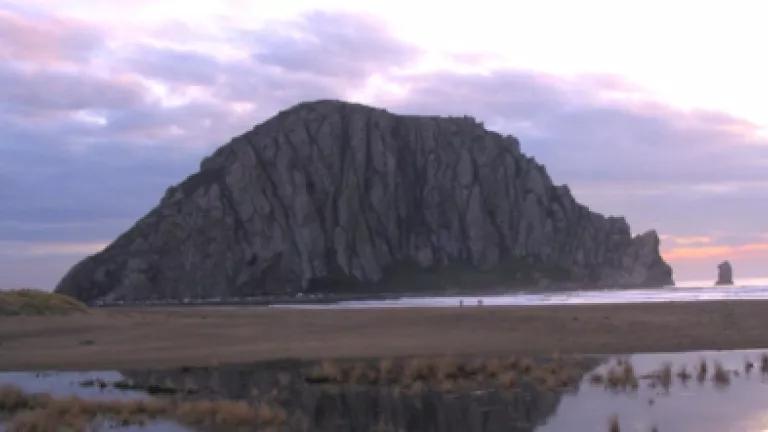Showdown at Morro Rock: Coastal Commission Vote Threatens Coastal Protection and Public Access

Before California had a world-renowned climate action program, it had a world-renowned coastal protection program. The Coastal Commission's vote to fire its executive director Charles Lester, a dedicated public servant, in the face of overwhelming public support for him and a complete absence of evidence throws the system that protects California's coast into disarray.
What happens next makes a world of difference.
The Coastal Commission must commit to - not veer from or abandon - the Coastal Act and the people from around the world who count on California law to keep the beach open to all.
The coast is a California state of mind. From school children in San Diego's City Heights neighborhood who learn scientific inquiry skills in coastal tide pools to intrepid surfers who brave the big waves at Mavericks off Half Moon Bay to senior citizens who find peace in a vibrant sunset, Californians all want to keep the coast accessible and free from the kind of wall-to-wall development that litters coastlines elsewhere. Support for protecting the coast is stronger than ever, as demonstrated clearly by a thousand people who travelled to the lovely, but remote, town of Morro Bay on a midweek workday to implore the Commission not to fire its well respected executive director.
The Commission voted 7-5 to ignore the people. With no explanation of their motives, 7 commissioners, who appeared to have already made up their minds before the day-long hearing, fired the executive director on the spot.
Forty years before Gov. Brown showcased California's climate leadership in Paris at the United Nations COP21, he signed the California Coastal Act in to law. The Coastal Act of 1976 (California PRC sec 30000 et seq) is a remarkable law, with strong, specific, science-based resource protection, public access and public engagement requirements. The unique composition of the part-time 12-member appointed Coastal Commission, responsible for overseeing state agency staff implementation of this landmark law, is a marvel of statesmanship and diplomacy. Appointments to the Commission are carefully balanced among three authorities - the Governor, the Speaker of the Assembly and the State Senate Rules Committee, who each appoint four commissioners. Half of the 12 commissioners are representatives of the public, intended to reflect the "economic, social, and geographic diversity of the state" and half must be selected from locally nominated elected officials from six coastal regions of the state. The commission is intended to combine concerns of the public interest at large and the more than 65 local cities and counties along the state's 1,100 mile coastline.
Coastal commissioners come and go. As part-time appointees with other jobs to do, commissioners depend on the expertise of a professional staff to carry out the day to day work that is the key to strong implementation of the law. There have been more than a hundred appointed commissioners over the past 44 years since California citizens organized a grassroots petition drive and passed Prop 20, the Coastal Initiative. Whereas, the staff responsible for actually carrying out the Coastal Act has been remarkably stable and loyal to the cause of coastal protection, with only four executive directors: Joe Bodovitz, Michael Fischer, Peter Douglas and Charles Lester - over those same 44 years.
California is deservedly known for our cutting edge environmental and public health state policies - from climate action to wildlife protection, children's health and safety, transportation innovations, water conservation, and coastal protection. All of these policies are carried out every day by an impressive array of State boards and commissions , each supported by professional staff in agencies dedicated to getting the peoples' work done, accountable to the public through the elected Governor and his administration and overseen by the State Legislature. When appointed part-time commissions turn on professional state staff , as a majority of the Coastal Commission did this week (by the slimmest one vote margin - a 6-6 tie would have kept Dr. Lester in his job), the fabric of California's environmental safety net is in danger.
We may never know why the Coastal Commission fired its well-respected executive director, but we already know that the people of California will not stand by and watch the Coastal Act get watered down through lax implementation. As my mother would say, tomorrow is another day. The people are watching.
